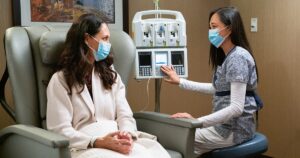Cancer survivorship includes the life when diagnosis start, during treatment, and the life after cancer when the patient has fully recovered. Despite there being many cases of remission for many patients, they also face challenges in physical, emotional and social parts of their life.

They may also have other physical side effects from cancer treatment which may include fatigue, pain, and changes in cognitive functioning, which is termed as chemo brain. These symptoms may disrupt normal working capacity and function or even quality of life may be diminished. It is important that patients come in for follow up care often since they may solve some of these problems through physiotherapy, drugs or changing their behavior. Based on the needs of a survivor, survivorship care plans assist them in making healthy choices.

Emotionally they often have symptoms of anxiety, depression and fear of the cancer coming back. It has been noticed that cancer can leave individuals with mental issues that may continue to persist even after completing their treatment process. It is advisable to seek counseling which could be helpful, or get in groups of survivors and discuss the events with others who have gone through the same journey. Meditation and yoga may relieve stress and help build up the mechanism of the individual’s emotional stability.

Socially, research has indicated that survivors are likely to experience restricted interaction with others or inability to fit into a working environment after surviving cancer. This means that the suffering person may feel that he or she is an outcast of the society because most people associate cancer with death, suffering. Family, friends and other members in the society should come out strongly to support survivors during these transitions so that they are not stigmatized and made to feel left alone.
WRITTEN BY: AMEDICC.COM
PHOTO CREDIT: GOOGLE.COM
